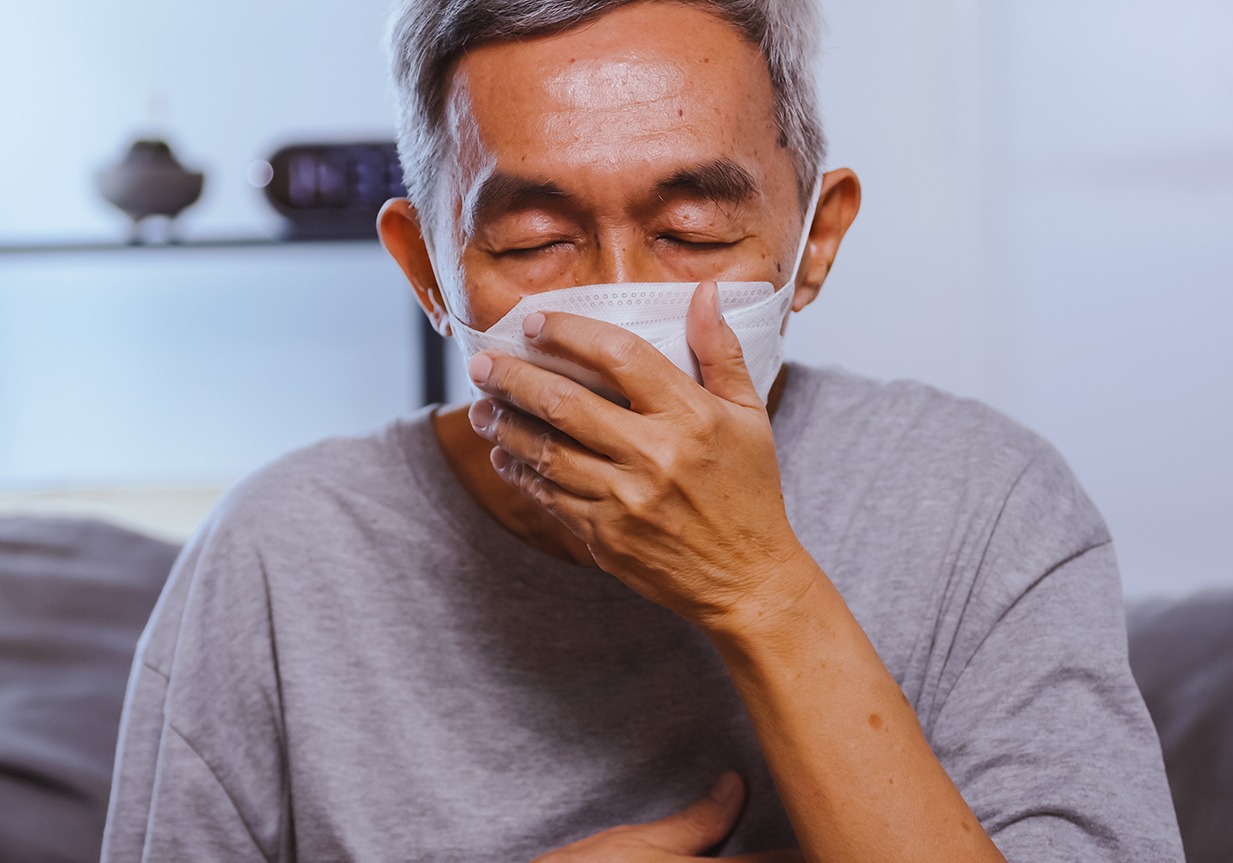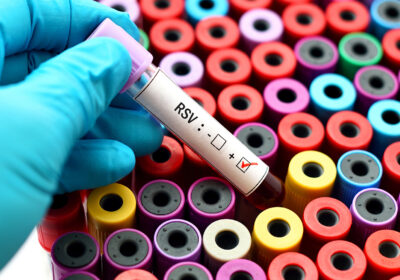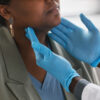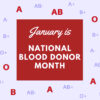What is RSV and why is it a silent threat?
RSV, short for Respiratory Syncytial Virus, is a highly contagious viral infection that primarily affects the respiratory system. It is often mistaken for a common cold or flu, which adds to its silent threat nature. RSV can cause mild symptoms such as coughing, sneezing, and a runny nose, but it can also lead to more severe respiratory complications like bronchiolitis and pneumonia, especially in vulnerable populations like infants and older adults.What makes RSV particularly dangerous is its ease of transmission. It can spread through direct contact with respiratory droplets from infected individuals, as well as through touching contaminated surfaces. The virus can linger on surfaces for hours, making it easy for unsuspecting individuals to contract it.
The silent threat of RSV lies in its potential to cause severe illness, hospitalizations, and even fatalities, especially in those with weakened immune systems or underlying health conditions. This is why understanding and raising awareness about RSV is so crucial to protect our communities, particularly the most vulnerable among us.
Who is at risk for RSV?
While RSV can affect individuals of all ages, certain groups are more susceptible to severe illness and complications from the virus. Understanding who is at risk can help us take appropriate precautions and ensure the well-being of our loved ones.Infants: Babies under the age of one are particularly vulnerable to RSV. Their immune systems are still developing, making it difficult for them to fight off the virus effectively. Premature infants, especially those born before 37 weeks of gestation, are at higher risk.
Older adults: As we age, our immune system weakens, making older adults more prone to severe RSV symptoms and complications. This includes adults over the age of 65, especially those with underlying health conditions such as heart disease, diabetes, or lung disease.
Individuals with weakened immune systems: People with weakened immune systems due to chronic illnesses, organ transplants, or certain medical treatments are at increased risk for severe RSV infections.
Individuals with underlying health conditions: Those with chronic lung diseases like asthma or COPD, as well as individuals with heart disease, diabetes, or certain neurological conditions, are more susceptible to severe RSV symptoms.
It is essential to safeguard these vulnerable populations by taking preventive measures, such as maintaining good hand hygiene, avoiding close contact with sick individuals, and ensuring all family members are up to date with routine vaccinations.

Signs and symptoms of RSV
Recognizing the signs and symptoms of RSV is crucial in order to promptly seek medical attention and prevent the further spread of the virus. While the symptoms may vary in severity from person to person, there are certain common indicators to look out for.In infants and young children, RSV infection often starts with mild cold-like symptoms such as a runny nose, sneezing, and coughing. As the virus progresses, these symptoms can worsen, leading to difficulty breathing, wheezing, and rapid breathing. In severe cases, RSV can also cause fever, irritability, and decreased appetite.
For older children and adults, RSV can present as a typical respiratory infection, with symptoms including cough, congestion, and fever. However, it is important to note that RSV can still lead to more severe complications in these age groups as well.
If you or your loved ones experience any of these symptoms, especially if they worsen or persist, it is advisable to seek medical attention promptly. Early intervention can help prevent complications and ensure a quicker recovery.
Preventing the spread of RSV in our communities
As we have learned about the signs and symptoms of RSV, it is crucial to focus on prevention strategies to curb the spread of this silent threat in our communities. By taking the appropriate precautions, we can protect ourselves and our loved ones from this highly contagious virus.First and foremost, practicing good hand hygiene is paramount. Wash your hands frequently with soap and water for at least 20 seconds, especially before and after caring for someone who is sick or handling items that may have come into contact with the virus. If soap and water are unavailable, use an alcohol-based hand sanitizer with at least 60% alcohol content.
Covering your mouth and nose with a tissue or your elbow when coughing or sneezing is another essential preventive measure. Dispose of used tissues immediately and perform hand hygiene afterwards.
Avoid close contact with individuals who are sick, especially those displaying symptoms of respiratory illness. If possible, try to keep a distance of at least 6 feet from someone who is coughing, sneezing, or displaying other signs of illness.
Regularly disinfect frequently-touched surfaces such as doorknobs, light switches, and countertops to reduce the risk of transmission. Use household cleaners or disinfectants that are effective against respiratory viruses.
In addition to these preventive measures, getting vaccinated against RSV can significantly reduce the severity of the infection if you do contract the virus. Children under the age of two, and adults over the age of 60 are advised to get this vaccination. Consult with your primary care physician or speak with a Pod Health provider to determine if vaccination is recommended for you or your loved ones, especially if you are at a higher risk of complications.
By implementing these preventive strategies, we can work together to protect our communities from the silent threat of RSV.

Treating RSV and the importance of early detection
While prevention is crucial in preventing the spread of RSV, it's also important to understand the treatment options available and the significance of early detection.Currently, there is no specific antiviral treatment for RSV. However, for mild cases, doctors may recommend supportive care such as getting plenty of rest, staying hydrated, and using over-the-counter pain relievers to alleviate symptoms. It's essential to consult with a healthcare professional before giving any medication to infants or young children.
For severe cases, hospitalization may be necessary, especially for infants, older adults, or individuals with weakened immune systems. In these cases, doctors may provide additional treatments to manage symptoms and provide supplemental oxygen if needed.
Early detection plays a vital role in preventing complications and ensuring timely treatment. If you or your loved one exhibits symptoms of RSV, such as persistent cough, difficulty breathing, or fever, seek medical care as soon as possible. Your healthcare provider can provide a proper diagnosis and recommend appropriate treatment options.
Raising awareness and advocating for prevention
Raising awareness and advocating for prevention is crucial in combating the silent threat of RSV in our communities. By educating ourselves and others about the risks and the steps we can take to protect ourselves and our loved ones, we can make a significant impact.One way to raise awareness is by sharing information about RSV through various platforms such as social media and community events. By highlighting the symptoms, transmission methods, and prevention strategies, we can ensure that more people are informed about this virus.
Advocating for prevention involves encouraging healthcare providers to prioritize RSV testing in high-risk individuals and promoting vaccination among eligible populations. Additionally, supporting policies that promote hand hygiene, proper respiratory etiquette, and maintaining a clean environment can go a long way in preventing the spread of RSV.
If you or a loved one are living with chronic conditions and would like to better understand how illnesses such as RSV can impact your health, reach out to a Pod Health clinician today. We are here to help guide you on your health care journey. If you are in need of support with your chronic conditions, we provide Chronic Care Management (CCM) services, as well as Remote Patient Monitoring (RPM) services–affording you a team of clinicians available seven days a week to support your healthcare needs.
Disclaimer: This blog does not provide medical advice. The information in this blog is for informational purposes only and is not intended to be a substitute for professional medical advice, diagnosis, or treatment. Always seek the advice of your physician or other qualified healthcare provider with any questions you may have regarding a medical condition or treatment and before undertaking a new health care regimen.







